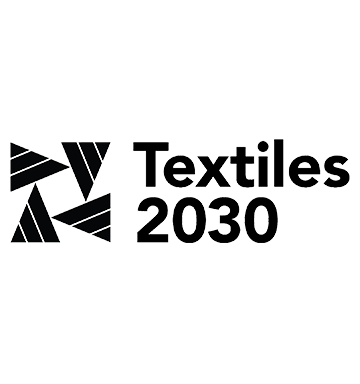AllSaints UK
With incremental changes for right now, and larger goals for the future, our sustainability efforts are always growing. We recognise we have a responsibility towards our planet, and the people involved in making our clothes, so we’ve developed a new uniform using recycled yarns, responsible wools, vegetable-tanned leathers and organic cotton.

“At AllSaints we see it as our responsibility to not only help our customers look good, but also feel good, in the knowledge that we have carefully considered the materials used as well as the processes involved in creating our collections for them. Understanding what something will be made of and how it will be made are prerequisites for us before any design goes into production.”
PETER WOOD, CEO
MATERIALS
We are committed to providing our customers the best products we can, ensuring we are developing collections made from responsible fibres and the finest materials - helping to secure a sustainable future for our planet. We are incredibly fortunate to have been working with trusted suppliers for over 10 years, allowing us to create products which are not only beautiful, but long lasting too.

WOOL
We have a responsibility to the animals, farmers and our customers to ensure we source our wool responsibly - when properly cared for, wool can last a lifetime. We are certified to the Responsible Wool Standard, which verifies wool fibre animal welfare and land management requirements and tracks it from farm to final product. Where possible, we also try to use recycled wool certified by the Global Recycled Standard, this allows us to further mitigate our climate impact.
LEATHER
AllSaints is a member of the Leather Working Group, which has strict auditing standards to ensure the chemicals used within the tanning process are managed efficiently. All of our leather in our supply chain is from certified LWG tanneries. The cattle industry is one of the largest contributors to deforestation - we plan to become more traceable and transparent when sourcing our leather, ensuring we are not contributing to deforestation.
ORGANIC COTTON
Cotton uses a huge amount of water in its cultivation and dyeing processes, not to mention the large amounts of synthetic chemicals it requires to grow. We are committed to using as much organic cotton within our collections as possible, to ensure the soil used to grow these crops are treated with respect and allow biodiversity to continue. Our cotton is also certified to the Global Organic Textile Standard and Organic Cotton Standard - which have very strict guidelines to ensure every supplier in the chain is certified to manage these fibres.
CELLULOSIC FIBRES
Tencel, Lyocell, Viscose and Modal are all sourced from trees. Each year it is estimated over 150 million trees are logged for the textile industry alone. In 2022 we joined forces with Canopy, a non-profit organisation with a mission to protect the world's forests, species and climate, as well as helping Indigenous communities. Their Canopy Style initiative was set up to ensure brands taking part are not sourcing from ancient and endangered forests by 2025 - looking at new and innovative ways to replace virgin cellulosic fibres.
SYNTHETIC FIBRES
There are many advantages of using synthetic fibres within our collection, they dry quickly, can be made to be waterproof, stain resistant, wrinkle free and long lasting. However coal, oil or natural gases are all used in the production, not always the most responsible choice, we are committed to move away from synthetic virgin materials and increase our collection of recycled synthetic fibres wherever possible.
RECYCLED FIBRES
Our aim is to use as many recycled materials as possible. Our polyester is derived from recycled bottles, helping reduce plastic pollution. Our cotton and wool is from old stock materials pre and post consumer, spun into new thread. And finally, our nylon is from a mix of old carpets and fishing net waste collected from our seas.

PROCESSES
Many processes within the textile industry use high volumes of chemicals and water to create beautifully dyed and finished products. But there are some great alternatives which do not have the same impact on our environment, and we are working hard with our suppliers to put more of these practices into our collections.
CHROME-FREE TANNING
Found across many of our leather products. Chrome-free tanning doesn’t use Chromium III, meaning the leather has better biodegradable properties.
NATURAL INDIGO DYE
Organic natural indigo dye is extracted from the leaves of the Indigofera Tinctoria plant. The process of extracting this and dyeing the fabric uses much less water than standard dyes, as well as considerably reducing the use of synthetic chemicals.
VEGETABLE TANNING
For some of our jackets, the leather-making process is carried out using vegetable tanning. Dyes are made from natural compounds such as nuts, fruits, tree bark, and leaves.
PLANT BASED DYES
Organic natural dyes use agricultural waste or non-edible natural compounds like leaves and nut shells. This process uses much less water and synthetic chemicals than regular dyes and supports the local economy of harvesting these materials.
DOPE DYED FIBRES
Conventional dyeing of synthetic fibres can use a lot of energy and water in the process and emit large volumes of Co2. Dope dyed synthetic fibres divert this water and energy as the dye is inserted into the fibre while being extruded. This also makes the fibre stay brighter for longer which prolongs longevity - something we all want with our clothes.
PACKAGING
Our carrier bags, online order boxes and gift cards are made from ethically-sourced recycled paper, dyed at the source to eliminate any extra machine time - all of which can be fully reused, recycled or composted.
The envelopes we use to ship small items and orders from our retail stores are made from biodegradable polythene, which starts breaking down on exposure to sunlight and heat.
In response to the Plastic Packaging Tax, which was introduced in April 2022, we are already using more sustainable poly bags - which are fully recyclable, contain 100% recycled content and are also carbon neutral.


WRAP
Textiles 2030, the most ambitious voluntary agreement designed to limit the impact clothes and home textiles have on climate change in line with the Paris Agreement and the UN Fashion Industry Charter for Climate Change. Find out more

Leather Working Group
We are a member of the LWG, a not-for-profit organisation that provides the world's leading environmental certification for the leather manufacturing industry. Find out more
CANOPY
We are working with Canopy through the Pack4Good and CanopyStyle initiatives to ensure our paper-based packaging and man-made cellulosic fibres do not come from ancient and endangered forests.. Find out more

TEXTILE EXCHANGE
Through their Climate+ strategy, they’ve set out to direct the global textile industry towards achieving a 45% reduction in greenhouse gas emissions within the fibre and raw materials production stage by 2030. Find out more

Grouptree
Through their Climate+ strategy, they’ve set out to direct the global textile industry towards achieving a 45% reduction in greenhouse gas emissions within the fibre and raw materials production stage by 2030. Find out more

ECONYL® Regenerated Nylon
ECONYL® yarn is a 100% regenerated nylon fibre made from nylon waste, such as fishing nets, fabric scraps, carpet flooring and industrial plastic rescued from all over the world - which would otherwise pollute Earth. Find out more

Global Recycled Standard
The purchase of Global Recycled Standard (GRS) certified products demonstrates demand for recycled content and best processing practices in the supply chain. Find out more

Organic Content Standard
Products certified to the Organic Content Standard (OCS) contain organically grown material that has been independently verified at each stage of the supply chain, from source to final product. Find out more

RESPONSIBLE WOOL STANDARD
We are certified to the Responsible Wool Standard. The RSW standard verifies wool fibre animal welfare and land management requirements and tracks it from farm to final product. Find out more
Repreve
REPREVE® is the world’s leading brand of recycled performance fibre, taking waste, such as plastic bottles, and giving it a second life as a sustainable fibre - helping to reduce plastic waste within our environment. Find out more

Tencel Lyocell
TENCEL™ Lyocell fibres are extracted from sustainably grown wood using a unique closed loop system which recovers and reuses the solvents used, minimising the environmental impact of production. Unique physical properties lead to their high tenacity profile, efficient moisture management and gentleness to skin. Find out more

Tencel Modal
With high flexibility, TENCEL™ Modal fibres offer textiles long-lasting quality and softness. The fibre’s sleek cross-section construction enhances its softness even after repeated washing, making it twice as soft as cotton. Find out more

Lenzing Ecovero
LENZING™ ECOVERO™ branded viscose fibres are the new standard for eco-responsible viscose in the fashion industry. When compared with generic viscose, the production of LENZING™ ECOVERO™ has a substantially smaller environmental footprint. Find out more
OUR CONSCIOUS COLLECTION